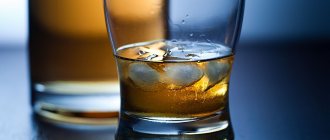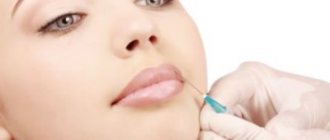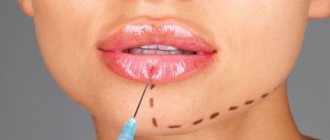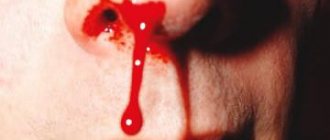After what period of time is alcohol allowed after various operations?
After surgery, doctors recommend completely abstaining from intoxicating drinks, including expensive ones.
But if this is really impossible for the patient, then their consumption should be limited to the maximum amount of time. It is worth knowing that anesthetics - pharmaceutical drugs that can cause anesthesia - are eliminated from the body depending on the type and dose of the drug, age and individual characteristics of the patient. Therefore, they may be incompatible with ethanol even in minute quantities. Surgical effects on organs and tissues lead to the appearance of postoperative edema. During this period, intoxicating drinks are strictly prohibited. They can increase swelling and negatively affect the condition of fresh stitches.
Ethanol gives a negative reaction with painkillers, anesthetics, and anti-inflammatory non-steroidal pharmaceuticals. The body, as a result, may react to this with manifestations unusual for it.
How soon can you drink alcohol, in overwhelming cases, after surgery? Experts strongly advise abstaining from alcohol for at least a month. During this period, the body is able to fully recover and get stronger. You should move, eat well, avoid overexertion and stressful situations, and strengthen your immune system.
If surgical measures were performed:
- After removal of the gallbladder (cholecystectomy), alcohol is prohibited for life, since the body’s processing of ethanol is much more difficult.
- After appendix removal, you should not drink for 3 weeks. Carbonated drinks (champagne, beer) are especially dangerous. Since they cause fermentation processes, the patient may experience bloating and gas formation, which is extremely dangerous during appendectomy.
- To remove cataracts, drink alcohol-containing drinks “under lock and key” for at least 3 months. During the rehabilitation period, patients are prescribed NSAIDs (non-steroidal anti-inflammatory drugs), which are incompatible with ethanol.
When can you drink champagne or other alcohol after the following operations: liposuction in the abdominal area, breast correction, facial skin tightening and other plastic surgery. Any plastic surgery is a full-fledged strip surgery. After them, you can only try your favorite intoxicating drink after 2 weeks. After undergoing CABG - coronary artery bypass surgery - a person will have to limit the consumption of alcohol and carbohydrates, salt, and animal fats for life.
If operations have been performed on the spine, hip joint, or shoulder joints, then alcohol-containing drinks are prohibited for at least 1 year to prevent a possible negative reaction from the body. In these cases, patients are often prescribed medications that improve microcirculation. Alcohol can significantly reduce their effectiveness.
Are alcohol and varicose veins compatible, is alcohol (any kind) allowed after vein surgery - questions often discussed on forums. If phlebectomy (removal of varicose veins) was performed, you should say a firm “no” to alcohol-containing products. Their consumption can provoke the development of thrombophlebitis and trophic ulcers.
Why you shouldn't drink alcohol before coding
In drug treatment for alcoholism, two types of drugs are used: those based on Disulfiram (treatment using the Torpedo method) and those based on Naltrexone and its analogues (for example, Vivitrol).
The action of Disulfiram comes down to the following: when introduced into the blood, it blocks the production of the enzyme necessary for the decomposition of acetaldehyde, a product of the breakdown of ethyl alcohol in the liver. Acetaldehyde is a more toxic substance than ethyl alcohol. Its accumulation in the body significantly enhances the toxic effect of ethanol. Therefore, after administering the drug to a person whose blood contains alcohol, the effect of toxins on the body is significantly enhanced, which leads to severe poisoning.
In this case, the following symptoms can be observed:
For drug treatment, drugs based on Naltrexone and its analogues are used.
- Nausea and vomiting;
- Hot flashes and facial redness;
- Cardiac arrhythmia, angina attack;
- A sharp increase in pressure;
- Diarrhea;
- Dizziness and headache;
- Dyspnea;
- Cramps.
After some time, breathing may stop and death may occur.
Naltrexone blocks the production of hormones that cause a person to feel pleasure after drinking alcohol. It acts on opioid receptors in the brain. If coding is done with Naltrexone, then as a result of the presence of alcohol in the blood, the consequences will be the same as with a drug overdose. After administration of the drug, a person may experience severe depression and suicidal tendencies.
It takes from 1 day to 5 days to remove alcohol from the body. This depends on the strength of the drink, the build of the drinker, the amount drunk, the duration of alcohol consumption and other factors. For example, Teturam can be administered within 24 hours after drinking alcohol. Before using Esperal, it is recommended not to drink alcohol for 2-3 days.
The psychotherapeutic method requires that the person be sober for 7-14 days. The period of sobriety gives him the opportunity to prepare for the procedure not only physically, but also mentally. If a person makes an effort and endures without alcohol for as long as required, this already speaks of the firmness of his intention to quit drinking and indicates the manifestation of willpower. Treatment is effective only after a person has consciously made the decision to undergo treatment for alcoholism, to stop drinking, and he has an incentive for this (attachment to family, for example).
Basic rules for taking antibiotics
- To ensure that treatment with antibiotics provides only benefits and minimizes their harmful effects, follow these rules. Do not start taking medications without consulting your doctor first. They all have a high affinity for different bacteria, and only a doctor can select them for each. You will either drink them when you shouldn’t, or choose them incorrectly, and they will not work.
- You should take antibiotics strictly according to the rules. For example, if you take 500 mg amoxil twice a day, then you need an interval of 12 hours between doses. This is how long 1 tablet taken will maintain the required concentration of the drug in the blood. If this time is not respected, the bacteria may become resistant to the drug. The same thing will happen if you miss doses of your medication.
- Pay attention to your diet during treatment. It is better to exclude fatty, smoked and fried foods from the diet. You need to give your digestive system a break. Fermented milk products, especially yoghurts with bifidobacteria and kefir, will be beneficial. You can eat boiled turkey and chicken meat, stewed vegetables.
• levomycin;• latamoxef;• metronidazole;• cefmenoxime;• co-trimoxazole;• furazolidone;• ketoconazole;• tinidazole;• cefamandole;• cefoperazone.
If you combine these antibiotics with vodka, wine or champagne, you can get nausea, vomiting, cramps and shortness of breath instead of a pleasant pastime. There are known deaths when a person thought that they could take antibiotics with alcohol, so there is no need to take risks.
The effect of some antibiotic drugs, such as erythromycin and doxycycline, is significantly reduced when exposed to alcohol, so treatment will be futile.
Drinking alcohol with antibiotics means giving the liver an additional shock, and this can cause a number of complications and diseases.
When you can drink alcohol after treatment with antibacterial drugs depends on several factors. • duration of treatment; • after how long the antibiotic is completely eliminated from the body; • presence of chronic liver and kidney diseases. You may be lucky and will not feel the following symptoms of intoxication when taking alcohol and antibiotics together: • headache; • nausea and dizziness; • pressing pain in the chest and difficulty breathing; • sweating and redness of the skin; • pressure surges.
Drinking fortified drinks can cause undesirable consequences for the body of the person being treated. This is primarily due to the fact that some medications can block the breakdown of consumed ethanol.
For example, the well-known drug Metronidazole has this property. As a result of its exposure, acetaldehyde, instead of being eliminated from the body, will accumulate in tissues and organs and have a destructive effect on them.
As a result of this combination of pills and strong drinks, the body will bear an additional toxic load, which is much more difficult for hepatocytes (liver cells) to cope with.
After alcohol and antibiotics, the liver cannot be quickly restored, since the toxic load doubles. The inability to remove toxins from the body is accompanied by signs of intoxication, much more painful than a hangover.
Manifestations of intoxication, if you drink antibiotics and strong drinks together, will not keep you waiting. After just a few hours, the patient may experience sudden attacks of nausea, vomiting, severe migraine-type headache, pain in the chest, and shortness of breath.
Alcohol and antibiotics provoke reddish spots on the skin, indicating a violation of blood microcirculation. Patients develop cold sweats and blood pressure fluctuates.
In especially severe cases, a disulfiram-like reaction may occur - a severe reaction of the body to the intake of alcohol, which can lead to serious consequences against the background of severe damage to the body.
This is why you should not drink alcohol and medications together.
Considering these symptoms, we note that it is strictly forbidden to combine alcohol with antibacterial drugs for people who suffer from hypertension - any amount of alcohol consumed can provoke a hypertensive crisis.
We also note that the method of introducing the drug into the body does not matter - complications from drinking alcohol can also occur with drugs in the form of injections, tablet forms, suppositories or eye drops.
Knowing the negative consequences of the tandem of drugs and alcohol, doctors explain to each patient why antibiotics are incompatible with strong drinks. Modern medical knowledge is increasingly moving not towards the treatment of diseases, but towards the dissemination of methods for preventing diseases.
Therefore, in this case, the prevention of complications during treatment with antibacterial agents is the patient’s responsibility. It is the patient undergoing antibiotic therapy who should be primarily interested in his recovery.
A high level of responsibility for one’s health and awareness of why it is impossible to combine medications and alcohol should become the philosophy of treating patients of the 21st century
At first glance, disease and alcohol are incompatible, since there is a conflict between use and impact on the body. Antibiotics are designed to treat, while alcohol puts an unwanted burden on an unhealthy body. It is no secret that antibiotics also have side effects, even if all medical recommendations are followed conscientiously.
Technological progress leaves its mark on the pace and way of life. Treatment does not always involve a hospital stay.
Often, patients continue to work, take care of business, and resolve issues simultaneously with antibiotic therapy. Habits return the patient to situations where the question arises “to drink or not to drink.”
Scary rumors about the consequences of combining alcohol and antibiotics are intended to help you make a decision in favor of “not drinking.”
Any drug goes a long way from laboratory research to pharmacies. Scientists are studying the effect of the drug on the body as a whole and individual systems and organs.
Any instructions for use contain information about interactions with other drugs, but do not contain information about compatibility with alcohol. This does not mean that the issue has not been studied.
Western scientists have long been studying the interaction of alcohol and antibiotics, trying to predict the body's response to ethanol intake during treatment. As it turned out, a wide range of drugs do not interact with alcohol at all.
The period of accumulation of the therapeutic substance in the body and its elimination remained unchanged both in the control group of volunteers and in the group taking alcohol.
This means that when taking many drugs while drinking alcohol, the body does not form dangerous chemical compounds. We should not forget that alcohol itself puts a considerable strain on almost the entire body. First of all, the load on:
- Cardiovascular system
- Nervous system and brain
- Liver and pancreas
- Genitourinary system
Drinking alcohol can aggravate the disease and delay the onset of recovery.
What antibiotics should not be combined with alcohol?
There is a separate group of highly effective antibiotics that are extremely dangerous to combine with alcohol. To avoid causing irreparable harm to the body, you should know which antibiotics should not be taken
cannot be combined with alcohol.
- Azithromycin. Broad-spectrum antibacterial drug. Remains in the body for up to seven days after the last dose
- Ceftriaxone. Third generation antibiotic. It is used to treat ENT diseases, respiratory tract infections, skin lesions, and the genitourinary system. 50% of the active substance ceftriaxone is eliminated from the body within 48 hours after the last dose. The elimination period is complicated by kidney and liver diseases.
- Amoxicillin. Prescribed as part of therapy for the treatment of bronchitis, tonsillitis, pyelonephritis, urethritis, gynecological and sexually transmitted diseases. 50% of the active ingredient amoxicillin is eliminated in the first 20 hours. Complete absence in the blood is observed two days after the last dose of the drug.
- Amoxiclav. Combined antibacterial drug. Amoxiclav is prescribed for the treatment of otitis, tonsillitis, bronchitis, infectious diseases of the genitourinary system, gynecological infections, skin inflammation, cholecystitis. In healthy patients, the half-life of amoxiclav is 25 hours.
- Bicillin-5. Antibiotic of the penicillin group. Bicillin-5 is used in the treatment of infectious diseases caused by pathogens sensitive to the drug. Also taken to prevent rheumatism. In the first eight days from the last dose, only 33% of the drug is released. The complete elimination period is five to six weeks.
It is strictly forbidden to combine alcohol with taking azotrimycin, amoxiclav, cefriaxon, amoxicillin, furazolidone, metronidazole, cefoperazone. These drugs are available in the form of injections, tablets, capsules, drops. The different release forms are designed to reach the treatment area as quickly as possible and are equally incompatible with ethanol.
The molecules of the healing substance react with ethanol, which leads to the formation of a highly toxic by-product chemical compound - acetaldehyde. Acetaldehyde intoxication leads to extremely serious consequences and is manifested by the following symptoms:
- High heart rate
- Redness of the upper body
- Difficulty breathing
- Cramps of the lower extremities
- Increased blood pressure
- Acute headache
Complete removal of antibiotics from the body can only be confirmed by a blood test. The state of health of individual organs has a direct impact on the period of cleansing the body of drugs. Any medicine comes with instructions, from which you can find out the half-life and complete elimination of the medicinal substance.
It should be remembered that the period of removal of antibiotics from the body depends on the condition of the kidneys, liver, cardiovascular system and is an individual indicator. The instructions indicate average statistical data, which may differ significantly from the indicators of an individual person.
How soon can you drink alcohol after antibiotic treatment?
Taking into account all the above information, we can say that alcoholic beverages can be consumed without fear only after a complete recovery and cleansing of antibiotics from the body.
Any medications have an effect not only on the unhealthy organ, but on the entire body. The patient needs to undergo a course of restorative rehabilitation after completing a course of antibiotic treatment.
Western experts do not prohibit drinking alcohol during treatment only if the combination is safe and within strictly defined limits. British doctors allow no more than three to four glasses of alcohol for men and two to three glasses for women. At the same time, doctors strictly stipulate the volume of the glass and the strength of the alcoholic drink.
Thus, a unit of alcohol is considered to be 10 ml of pure ethanol, which can be contained in different quantities of vodka, cognac, beer or wine. 10 ml of ethanol is contained in:
- Champagne or wine 13% – 100 ml
- Beer 4.9% – 285 ml
- Vodka and cognac (40%) – 30 ml
We should not forget that taking any amount of alcohol with antibiotics that react chemically with ethanol is strictly prohibited and can lead to irreparable consequences.
If you use antibiotics and go for the Botox injection procedure, you may encounter an unexpected reaction. One medicine may provoke an additional effect, another may worsen the results of the drug, and a third may increase paralysis by botulinum toxin.
Experts carefully studied the reaction after the interaction of botolutoxin with other drugs. They found that increased paralysis can be expected if:
- substances of the tetracycline group;
- alkaloid quinidine;
- magnesium sulfate;
- drugs from the group of lincosamides and polymyxins;
- succinylcholine.
There is a large list of agents that enhance the effect after the administration of botolutoxin. Some medications can block muscle activity.
Therefore, it is impossible to accurately predict the final result after combining them with botolutoxin. This list includes many drugs, for example, Darifenacin, Disopyramide, Orphenadrine, Flavoxate and many others. They are prohibited when used together with botolutoxin.
If a person has a cold, flu, or acute respiratory infection, and is taking various medications, then he is prohibited from undergoing the procedure for administering botolutoxin. The injection is allowed after 2 months after recovery.
To avoid getting into trouble, doctors do not recommend using antibiotics with Botox. But how long should it take after taking them? You can go for the procedure 3 months after treatment with antibiotics.
In addition to the compatibility of botulinum toxin and antibiotics, many people are interested in the consequences of drinking alcohol directly after the rejuvenation procedure.
Doctors strongly advise abstaining from alcohol. But on the Internet you can find many reviews where people say that they drank alcohol after the procedure, and it did not harm them. Who is right?
How many days after antibiotic treatment can you drink alcohol?
Drugs from this group are prescribed for the treatment of inflammatory diseases that the body cannot cope with on its own. Antibiotics attack pathogens, destroying their cellular structure, due to which the disease recedes and the patient feels better.
However, there is another side to taking antibacterial agents. Since their removal from the body falls entirely on the liver, it has to take a significant blow.
Experts also proved that in people who drank alcohol during antibiotic therapy, the effectiveness of treatment was significantly lower than in patients who completely abstained from alcohol.
It all depends on the drug that was used for treatment. It is best to clarify this issue with your doctor. He will tell you in detail how long it will take to return to your normal lifestyle and drink alcoholic beverages. If you cannot contact your doctor, you can carefully review the instructions for the drug.
It should indicate:
- Duration of treatment;
- Compatibility of this medicine with ethanol;
- The period during which you should not drink alcohol even after the end of therapy.
Typically the ban lasts from three to seven days. It all depends on the type of medication and the duration of its removal from the body.
If the annotation does not contain any information about the compatibility of the medicine with alcohol, this does not mean that you can start drinking immediately after completing the course of treatment. In any case, it is recommended to wait at least a day to allow the residual components of the drug to leave the body.
It is important to remember that even if the instructions for the medicine do not mention interactions with ethyl alcohol, you should still not drink alcohol immediately after taking antibiotics. This can harm the body, which is still fragile after illness, and cause unwanted side effects.
When can you drink alcohol after antibiotics? Doctors do not give an exact answer to this question. Each group of antibiotics has its own mechanism of action and therefore reacts differently to alcoholic beverages.
In addition, most disorders that require therapy with such drugs require limiting the consumption of certain foods. So, today we will talk about antibiotics and alcohol (when you can drink alcohol, features of interaction, negative consequences).
Rules for taking antibiotics
Antibiotics are very effective, but dangerous drugs. Before taking them, you should definitely consult a specialist.
The main indication for the use of such drugs is the presence of a bacterial infection that the body cannot cope with on its own. If the doctor has prescribed a course of antibiotics, then while taking them you should follow certain rules:
- Strict adherence to the time and frequency of taking medications. This is necessary to maintain a constant concentration of certain substances in the blood.
- The duration of antibiotic use is determined by your doctor. As a rule, the course of therapy ranges from 5 to 14 days. Some long-acting medications are taken for 1-3 days.
- Take medications with clean, non-carbonated water.
- During treatment you need to follow a diet. You should avoid heavy fatty foods and alcohol consumption.
Why should you not drink alcohol during antibiotic treatment?
One of the main requirements during antibiotic therapy is abstinence from alcohol. In addition, it is not recommended to take alcohol after the end of treatment for a certain time.
Why is alcohol contraindicated after a course of antibiotics?
- When these substances enter the body, they break down into smaller components, which are converted into simple compounds. Some molecules of alcohol-containing drinks coincide with antibiotic molecules. Interacting, they can lead to serious disruptions in the body.
- It has been proven that alcohol significantly reduces the effectiveness of antibacterial drugs.
- The mixture of these substances puts a lot of stress on the liver, which negatively affects its functioning and the condition of the body as a whole.
- The reaction of organs and systems to a combination of alcohol and chemical antibacterial agents is unpredictable.
Consequences of drinking alcohol during antibiotic therapy
In order to answer the question of when you can drink alcohol after taking antibiotics, you should talk about the consequences of mixing these substances in the body.
What happens if you drink a glass or two of alcohol after taking an antibiotic tablet? When can you drink alcohol, how many hours or days after antibiotics can you drink alcohol so as not to harm your health?
Antibiotic and alcohol
Every sane person is aware of the dangers of alcohol to the body, however, many do not want to deny themselves taking it even when they have serious health problems and the doctor has prescribed them a course of antibacterial therapy.
Despite the fact that alcohol and antibiotics are absolutely incompatible, many still wonder how serious the consequences of such an interaction can be or how long after taking a course of antibiotics can you start drinking alcohol?
Interaction of alcohol and antibiotics in the body
Even in biology lessons from the school curriculum, we were told that all substances, when they enter the body, begin to break down into simpler parts. This chain of cleavage continues until only the original parts remain of the substance, that is, proteins, carbohydrates, fats and amino acids.
The molecules contained in alcohol will also break down into their parts, and it often happens that they can coincide with antibiotic molecules. Such mixtures can lead to a malfunction in the body and some systems and organs in it will begin to function incorrectly.
For example, if you take alcohol in combination with the drug Trichopolum, the body may perceive such a mixture as the substance Teturam. The fact is that these substances have a very similar chemical formula, and this can have a very negative effect on the human body.
A person’s heart rate may increase, heart pain may appear, and the brain will begin to function worse, dulling sensations and feelings. Thus, the consequences can be very sad.
Such combinations can also lead to problems such as:
- increased load on the liver;
- nausea, dizziness, vomiting;
- severe headaches, mental confusion;
- development of an allergic reaction.
How long after a course of antibiotic treatment can you drink alcohol?
If you mix drugs from this group and intoxicating products, liver function may be disrupted. Instead of cleansing the body, the liver, on the contrary, accumulates toxic substances.
If you want to drink after taking medications, be aware that you may experience severe allergic reactions within a few hours. You will experience sweating and redness.
If you mix medications and alcohol, it can cause severe poisoning. You will experience symptoms such as nausea, vomiting, terrible migraines, and dizziness. A hangover while taking medication can lead to psychological disturbances and loss of sanity. Drinking beer is also not advisable.
With the simultaneous use of drugs and alcohol, jumps in blood pressure are observed. It can decrease or increase from a large amount of alcohol.
To avoid disastrous consequences when taking medications, it is not allowed to drink alcohol.
How long after taking antibiotics can you still drink alcohol?
Under no circumstances should alcohol be consumed the day after the end of the course. After antibiotics, you can take strong drinks for at least five days.
The group of antibiotics that are incompatible with alcohol include: aminoglycosides; chloramphenicol (complex side effects are possible).
How long after taking this medicine will drinking alcohol be harmful?
Those who drink alcohol and chloramphenicol should be prepared for side effects.
Nitromidazoles. Is it possible to drink alcohol before the end of the medication period? Only on the seventh day can you drink alcohol after taking antibiotics of this type.
Cephalosporins. How long should you wait before drinking alcohol? The permitting period is at least three days. During this time, the antibiotic is usually eliminated from the human body. If you drink strong drinks the next day, it can lead to tachycardia and other serious consequences.
Macrolides. The negative impact on the human liver and brain doubles from the medications and alcohol taken. After how many days can you drink? Allow as much time as possible to pass before drinking alcohol.
Lincosamides. When can you drink alcohol? When using this drug, strong drinks are prohibited. Alcohol is allowed only on the fourth day.
Medicines that do not interact adversely with alcohol:
- Penicillins are a group of broad-spectrum drugs.
- Vancomycin. It blocks the renewal of microbial cells.
- Rifomycin. It is used to treat most ailments.
- Heliomycin is an antibiotic used in the treatment of diseases of the ENT organs, as well as infectious dermatitis.
How long after surgery can I drink?
The safe time interval between surgery and alcohol depends on the clinical picture and general condition of the patient.
Therefore, it is difficult to recommend any specific period of abstinence from drinking. Only a doctor is able to determine, for example, whether it is possible to drink alcohol a month after laser vision correction or whether the patient needs to abstain for an entire quarter.
There are only approximate recommended times:
During laparoscopy associated with gynecological problems, you should forget about alcohol for 1.5 months. In some situations, the patient has to give up drinking altogether. Removal of the gallbladder causes just such restrictions. Sometimes after surgery the patient has to take medications throughout his life, which are rarely combined with alcohol. After laparotomy, you should give up strong drinks in the same way as in the previous case, for 1.5 months
Surgery associated with heart pathologies requires special caution. In the absence of complications, drinking is allowed after 4 weeks.
If you do this earlier, you can provoke the development of heart failure, myocardial infarction and stroke. For eye diseases, the interval after correction should be at least 4 weeks. Sometimes the patient is prohibited from drinking for 3 months. Such restrictions are associated not only with the recovery period, but also with the drugs that need to be used after surgery. Almost all of these drugs are incompatible with ethanol. If plastic surgery was performed, abstinence is 2-4 weeks. In the event that complications arise during the correction process, the restriction time can extend to several months. Removal of the pancreas is a case when in the future it is recommended to completely forget about alcohol. The first 3 years are considered the most dangerous in terms of drinking. When removing malignant tumors, you can drink alcohol only with the permission of the doctor.
When thinking about whether it is possible to drink alcohol when the thyroid gland is removed in the postoperative period, it is better to abandon this idea. It is necessary to completely avoid strong drinks, as their periodic intake will begin to destroy the body. Drinking will provoke the development of pathologies of the liver and blood vessels and will affect all systems. Taking it will also negatively affect brain function.
Recovery after surgery
The operation itself does not mean a complete recovery. Immediately after surgery, the recovery period begins, which can take up to several months. At this time, it is important for a person to monitor his own well-being and avoid stress and strain.
Alcohol is recognized as one of the most dangerous substances in the postoperative period. Of course, in most cases, alcohol does not need to be eliminated for the rest of your life, but there are good reasons to give it up in the early stages of rehabilitation.
It is especially dangerous to drink alcohol in the first days after surgery using anesthesia. Any doctor will confirm that after anesthesia, the medicine will remain inside the body for a long time.
The person will regain consciousness, but chemicals will still circulate through his bloodstream. Combining them with ethyl alcohol can provoke undesirable consequences from many organs, including the heart, lungs, liver, and central nervous system.
We should not forget about the effects of alcohol on the nervous system. A person in a state of intoxication behaves inappropriately, showing excessive irritability and nervousness, which develop into attacks of aggression. With the use of anesthesia, the situation often worsens. The patient may experience confusion, delusions, and hallucinations. This perspective allows us to conclude that drinking after surgery is extremely undesirable.
In the early rehabilitation period, the human body is especially vulnerable, so surgeons advise minimizing the load on it. The patient will spend the first days after abdominal surgery in the hospital under the supervision of medical personnel. Later, if he feels well and has a favorable prognosis, he will be discharged home, telling him what rules need to be followed. Indispensable conditions for high-quality and rapid rehabilitation are:
- bed rest;
- activity limitation;
- refusal of any loads;
- healthy sleep;
- gentle nutrition;
- avoiding stress;
- rejection of bad habits.
The attending physician will explain when you can get out of bed and do basic household chores. Ideally, the patient will rest for the first two to three weeks, and relatives will take care of all the worries. They must also monitor the patient’s compliance with the daily routine.
If the sutures have successfully healed and scarred, and there is no pain, you can take short walks in the presence of someone close to you. How long it will take for this to happen is an individual question. Some go outside after just a couple of weeks, while others require bed rest for several months.
The effect of alcohol on the body after anesthesia
Upon returning from the operating room, you should also not rush to relieve the stress you have experienced with a glass of wine, a glass of vodka or a glass of beer.
- in the postoperative period, to avoid infection of the sutures, the patient is prescribed antibiotics. These drugs inhibit the breakdown of ethanol, which causes the accumulation of acetaldehyde in the blood, a toxic substance that causes severe intoxication. The condition is accompanied by nausea, dizziness, low blood pressure, difficulty breathing, increased sweating, tachycardia and flushing of the facial skin.
- Any anesthesia weakens the body's immune response. Drinking alcoholic beverages can cause exacerbation of chronic and latent diseases. Recovery in this case becomes difficult and lengthy.
- drinks, the production of which includes a fermentation stage (beer), slow down tissue regeneration, which can increase the healing time of sutures.
- vasodilation caused by alcoholic drinks can provoke heavy bleeding, which is fraught with the most dire consequences.
Alcohol, like anesthesia, has a depressant effect on the central nervous system. The dose of the administered drug is determined by the doctor, taking into account the general condition of the patient, which allows minimizing side effects and ensuring rapid recovery of the body after surgery. If you take alcoholic beverages during the rehabilitation period, the functioning of the central nervous system is significantly disrupted. Hallucinations and delusional states may occur. Breathing becomes difficult, the functioning of the sensory organs deteriorates until it temporarily stops. There are cases where incontinent patients lost sight, hearing or touch.
How long after anesthesia should you not drink alcohol?
The duration of abstinence from drinking alcoholic beverages is determined by the doctor and coincides with the rehabilitation period. Thus, after removal of the appendix, recovery of the body lasts up to 3 weeks, and during eye surgery this period increases to 3 months.
If the operation was performed on the stomach, liver, pancreas, or gall bladder, alcoholic beverages are contraindicated for the rest of your life. Even the smallest dose of ethyl alcohol can lead to dire consequences.
There is an opinion in society that after heart surgery it is useful to drink a little red wine every day. This reasoning stems from the fact that red wine has a beneficial effect on the cardiovascular system and supposedly helps to shorten and ease the recovery period. However, no research has been conducted on this matter, and only the attending physician can decide in each specific case whether drinking wine is advisable! If your doctor allows you to drink alcohol, you should not exceed the recommended dosage under any circumstances! You should also avoid alcoholic beverages of poor quality or unknown origin.
A person who abuses drinks containing ethanol takes longer to recover from surgery performed under anesthesia than a normal patient. In addition, the likelihood of complications in the postoperative period increases significantly. Drinking alcoholic beverages during this difficult time for the body increases existing risks many times over.
How to hold out for the allotted time?
The state of health after waking up from medicated sleep cannot be called good:
- dizziness;
- nausea;
- dry mouth;
- strong thirst.
This is why the need to abstain from water causes protest. You can alleviate your condition by rinsing your mouth or moistening your lips with water.
Attention! Here it is important to hold on and not swallow the water that is in your mouth.
If a child has undergone the operation, the same prohibition applies to him. If there is a close relative in the room next to him, it is important not to give in to the child’s pleas and persuasion. It is important to remember that the consequences of violating the ban are much more dangerous and serious than minor discomfort due to thirst.
In the first hours after waking up, thirst is a subjective reaction to dry mouth and a general deterioration in well-being. There is no need to worry about dehydration: if necessary, the dropper will normalize the water-salt balance.
Reasons for the incompatibility of drugs with alcohol
Below are the categories of drugs that should not be taken with alcohol, and the reasons for this prohibition:
- sedatives, hypnotics, anti-inflammatory drugs and tranquilizers. In this case, the effect of alcohol-containing products is that they potentiate or, on the contrary, reduce the effect of medications. In addition, the properties of drugs may completely change during such an interaction, and the body’s reaction is completely unpredictable;
- antibiotics. It is unacceptable to mix this type of medication with alcohol. They are incompatible, firstly, due to changes in the properties and effect of the drugs. Secondly, under the influence of alcoholic beverages, the amount of toxins released by antibiotics during their impact on the body increases sharply. The consequences of such a mixture will be pain in the head, increased heart rate, dizziness, changes in blood pressure, a feeling of lack of air, fever or, on the contrary, cold sweat, vomiting and nausea;
- allergy remedies. Such a combination can cause visions, a depressed state, or excessive activity. In addition, it will be much faster and stronger to get drunk when taking antihistamines and fun drinks at the same time;
- antidepressants. Taking them together with alcohol can cause an acceleration of heart rate, a sharp increase in blood pressure and even sometimes a hypertensive crisis. This state can persist for up to 14 days;
- antipyretics. The effect of alcohol is especially dangerous here, since due to it the negative effect of this type of medication on the liver increases significantly. As a result, there is a possibility of developing an inflammatory process or gastrointestinal ulcer;
- drugs that have a diuretic effect. It is not recommended to take such tablets with alcohol due to the risk of indigestion and vomiting, as well as low blood pressure. There have been cases when such a combination caused the development of pancreatitis and heart failure;
- painkillers. The compatibility of analgesics with alcohol is zero, since when they are taken simultaneously, a person may experience headache, tinnitus, rapid heartbeat and loss of strength. In such a situation, vomiting and nausea are not excluded;
- medications for cardiovascular diseases. We are talking about vasodilators and antispasmodics. Due to the ability of ethanol to enlarge blood vessels, simultaneous intake of alcohol and similar medications can cause vascular insufficiency. The pressure level can drop to unacceptably low levels. Dizziness and fainting are also observed;
- blood thinners. Doctors say that drugs belonging to this group should not be taken with alcohol due to the high likelihood of bleeding and, as a result, hemorrhage into vital organs, which can lead to death. This combination of foods causes paralysis in some cases;
- hormonal medications. In addition to the fact that alcohol itself negatively affects the functioning of the endocrine system, it causes an increase in the amount of certain types of hormones. As a result, they are added to those that come from drugs in tablets or injections. The consequences of this effect can be thrombophlebitis, stomach ulcers, and limb cramps.
Why anesthesia may not work
The craving for strong drinks is also dangerous because it can cause resistance to anesthetics. More often, such medications are produced in ampoules. Special substances can block pain impulses and interfere with the delivery of information about pain to the brain.
Let's figure out whether it is possible to drink alcohol in minute quantities before anesthesia. Under the influence of alcohol-containing products, drug pain relief can suddenly (prematurely) - about 15-20 minutes - stop affecting the body. The patient may not be able to cope with severe pain. In such situations, repeat anesthesia is often required.
The threat also lies in the fact that the consumption of strong drinks can provoke withdrawal syndrome (withdrawal) with further disruption of cerebral circulation and the onset of delirium (mental disorder).
Non-standard smoking methods and their impact
Is it possible to smoke in the postoperative period? What type of smoking (regular or electronic cigarette, hookah) is safe? Surgical patients face these questions and naturally want answers to them.
Many people believe that smoking hookah is a safe alternative to regular cigarettes. But there are some nuances here that are hidden from smokers. Yes, hookah tobacco contains a minimal amount of nicotine - 0.5%, and there is no tar, unlike a standard cigarette, but the carbon monoxide released when smoking causes enormous harm to the body.
Carbon monoxide from hookah smoking is not the only harmful substance; there are others that accumulate in the body. For example, increased concentrations of arsenic, lead, chromium, carboxyhemoglobin, nicotine. Unlike regular cigarettes, a person can smoke a hookah for quite a long time (up to several hours). Therefore, the amount of harmful substances entering the human body when smoking hookah tobacco is much greater.
Scientists have proven that if you smoke a hookah for an hour, the harm to the body will be the same as from smoking a hundred standard cigarettes.
Another common alternative to standard smoking is electronic cigarettes. People generally think that when they start smoking electronic cigarettes, they cause minimal harm to the body. Therefore, there is a false opinion that standard cigarettes can be replaced with this type after anesthesia or anesthesia.
Electronic cigarettes use a special smoking liquid that contains nicotine. Everyone already knows that it negatively affects internal organs and the nervous and cardiovascular systems, and also causes addiction and dependence.
Electronic cigarettes cause nicotine addiction
It is known and proven that regular cigarettes adversely affect the course of anesthesia and the recovery of the body after surgery. Contribute to the development of pneumonia, bronchitis and complications from the cardiovascular system. When you can start smoking in the postoperative period, you need to ask your doctor.
Smoking after surgery:
- Before our eyes. During the recovery period, you should stop smoking cigarettes. When smoking, the pressure in the eyes changes dramatically, and tobacco smoke can enter the eyes, which adversely affects the healing process. Experienced smokers need to minimize the number of cigarettes they smoke.
- For appendicitis removal. Smoking is prohibited in the first three days after surgery.
- In the oral cavity. Smoking is not recommended during the first two postoperative days.
- On the heart. It is necessary to stop smoking not only during the recovery period, but also to quit this harmful habit altogether.
- And other surgical interventions.
The postoperative period for recovery of the body is different for everyone, depending on the complexity and how long the surgical intervention lasted. Therefore, the period of quitting smoking varies, and in some cases it is necessary to completely forget about cigarettes forever.
Why you shouldn’t drink alcohol: possible consequences and dangers
For what reasons is it not recommended to drink alcohol after appendicitis? Let's list them:
- Alcohol, as you know, enters the blood and, along with it, enters all tissues and organs, having an extremely negative effect on them. And after the operation, all tissues are already depleted, so the destructive effect of alcohol on them is more than inappropriate and even dangerous. First, the edges of the cut must heal properly, which alcohol can interfere with. Secondly, alcohol has a detrimental effect on all mucous membranes of the digestive organs, causing their inflammation. And if you consider that the appendix is part of the intestine, you can imagine how dangerous inflammation of the mucous membranes can be.
- This surgical intervention is a rather noticeable load on the liver, which is forced to work literally “for wear and tear” during this period. And alcohol is a real blow to this organ. Therefore, you need to stop drinking alcohol in order to keep your liver safe and sound. Otherwise, you risk developing cirrhosis.
- In almost all cases, after surgery, doctors prescribe antibiotic medications to avoid tissue infection (bacteria can easily get into the wound, causing suppuration or sepsis). In the annotation for any medicine belonging to the group of antibiotics, you can find information that drinking alcohol during treatment is strictly contraindicated. This is due to the fact that alcohol can significantly reduce the effectiveness of the active components of the product and make the treatment useless and ineffective. And in some cases, it is possible to change the effect of antibiotic substances. And it is unknown what the effect will be, but it can be unexpected and very dangerous.
- Why can't you drink beer after appendicitis? After all, such a drink is not strong and is natural. But do not forget that beer is a fermented drink, which, when ingested by the digestive organs, causes bloating and flatulence. And increased gas formation after surgery performed on the abdominal cavity is extremely dangerous. The walls of the stomach and intestines will tighten and expand, and this may lead to the postoperative sutures coming apart. Suture dehiscence is a direct indication for hospitalization and repeated surgery. As a result, the rehabilitation period will be prolonged and greatly complicated.
When can you drink strong drinks after treatment?
There is no exact number of days after which it would be possible to say for sure that you can drink alcoholic beverages. Each drug has an individual number of days after which you can drink alcohol after taking antibiotics. But it is always longer than ten days.
10 days is the minimum period during which our kidneys and liver should return to normal, and the intestinal microflora will be restored. But it is worth taking into account the characteristics of the body.
If the patient has chronic diseases of these organs, then the period of abstinence will be much longer. To avoid mistakes, you can consult your doctor.
So, this is all the advice on drinking alcohol after taking a course of antibiotics. Follow them, and you won’t join the list of people who say that medications are harmful and you shouldn’t take them. You can’t drink them without a doctor’s prescription, and by following all the rules given above, you can cure your disease without harm to your body!
Each medication contains certain active substances that have an effect on pathogenic bacteria. But the essence of taking potent drugs comes down to a single task - fighting the virus or bacteria that caused the disease.
Not everyone is serious about taking strong drugs, and does not maintain a certain number of days during which they cannot drink alcohol after taking antibiotics.
Any drug has its own side effects, which may or may not appear during treatment. Alcohol-containing products can several times increase possible side effects during the course of treatment. Therefore, it is important to know how long after antibiotics you can drink alcohol.
When a course of medication is prescribed, even small doses of alcohol-containing products should be excluded during the period of administration. As for the situation when you can drink alcohol after taking antibiotics, for each drug this is an individual time period, and depends on the rate of elimination of the active components of the drug.
Thus, some compounds are completely eliminated from the blood after a day, others remain in the blood for a week or more.
To avoid undesirable consequences and not to overload the body’s natural filters, you should not drink alcohol for 10 or 15 days after taking antibiotics. This is the optimal time during which the blood should be completely cleared of the active components of the drug.
The annotations for many drugs indicate the impossibility of combination with alcohol-containing products. In this case, the number of days when alcohol is allowed after antibiotics is also indicated.
If the patient has pathologies with the kidneys or liver, the time when you can drink alcohol after antibiotics needs to be extended.
Judging by the fact that you are reading these lines now, victory in the fight against alcoholism is not yet on your side...
Have you already thought about getting coded? This is understandable, because alcoholism is a dangerous disease that leads to serious consequences: cirrhosis or even death. Liver pain, hangover, problems with health, work, personal life... All these problems are familiar to you firsthand.
Avoiding alcohol before surgery - why is it necessary?
All surgical interventions can be divided into two large groups - emergency and planned.
In the first case, the operation is performed immediately when pathology is detected. As a rule, there is no talk of preliminary preparation. If the intervention is planned in advance, then the patient must approach the preliminary stage extremely responsibly. The effectiveness of the operation and the speed of subsequent recovery will directly depend on the efforts made.
The doctor always gives specific recommendations at the preparatory stage. They directly depend on the type of intervention and the organ being manipulated
Thus, during operations on the gastrointestinal tract, it is especially important to follow a diet that allows you to free the system from waste and toxins, and the day before the intervention, any food is excluded. It is better to refuse food during other operations, since anesthesia given on a full stomach can provoke vomiting.
Another absolute prohibition is drinking alcohol. Experts name several reasons why you should give up alcohol before surgery:
- The most common reason is instant intoxication. A person in this state cannot adequately assess what is happening; he simply does not understand the seriousness of the whole situation. There is no guarantee that he will correctly answer doctors’ questions about the presence of chronic diseases or allergies to medications.
- Typically, the day before surgery, the patient will have laboratory tests to determine their baseline health. If ethyl alcohol is present in the body at this moment, the results will be distorted, and the doctor will not get the real picture.
- Alcohol affects the composition and properties of blood. It is known that when drinking alcohol, it loses water and thickens. Its shaped elements begin to stick together, forming small clots - blood clots. Their presence is extremely undesirable during the operation, as they can clog blood vessels.
- The main condition for many operations is to put a person into a narcotic sleep through special medications. This explains why you should not drink alcohol immediately before the intervention. In this case, the calculated dose may not have an effect or, on the contrary, will plunge the person into too deep a sleep. In addition, anesthesia always puts a strain on the heart, which wears out when drinking alcohol.
All of the above explains why doctors advise refraining from drinking alcohol before surgery. Moreover, you should give up strong drinks in advance, since ethanol leaves the body slowly and even residual amounts of this substance can lead to disastrous consequences.
Postoperative complications
According to medical statistics, the risk of complications in patients who drink alcohol before or after surgery is much higher. Ethyl alcohol and anesthesia are absolutely incompatible. Anesthesia is a temporary loss of tissue sensitivity under the influence of medicinal anesthetic substances. Their main task is to block the transmission of nerve impulses. As a result, the signals do not reach the brain, so the patient does not feel pain.
The effect of anesthesia after surgery lasts another 2-3 hours. If you drink a little alcohol after surgery, the effect of the painkiller goes away instantly. A similar reaction can occur if alcohol was drunk before surgery. In this case, additional anesthesia will not bring the desired result.
Any surgical intervention is stressful for the body. Drinking alcohol after surgery can lead to serious problems. Possible complications include:
- headache;
- clouding of consciousness;
- nausea;
- decrease in blood pressure.
Ethyl alcohol negatively affects blood clotting. It makes it too thick. Red blood cells stick together in the blood and form clots that clog blood vessels and small capillaries. Drinking alcohol after surgery can cause stroke, heart attack or hemorrhage.
Under the influence of ethanol, blood vessels dilate, which can lead to internal bleeding.
In persons who have abused the drug before surgery, recovery from general anesthesia is difficult. This process is often accompanied by symptoms of hangover, anaphylactic shock, delirium tremens or impaired consciousness. These symptoms negatively affect the patient’s health and subsequently cause a difficult rehabilitation period.
Appendectomy should be approached as responsibly as possible. Alcohol should be avoided both before and after surgery. Drinking during rehab is a bad idea. The body is very weakened after anesthesia, so a small dose of alcohol can harm your health and negate the results of the operation. It is much easier to ruin your health than to restore it.
Source https://alko112.ru/upotreblenie-spirtnogo/alkogol-posle-operatsii.html
Potential complications of drinking alcohol
Alcohol consumed after surgery can provoke serious complications and lead to a significant deterioration in the patient’s health or death. The overall outcome depends on various factors, including:
- floor;
- age;
- presence of chronic diseases;
- possibility of allergic reactions;
- volume of alcohol consumed;
- type of intervention;
- anesthesia technique.
It is known that with minimal amounts of alcohol consumed, the likelihood of severe consequences is reduced, but the risk cannot be completely eliminated. This is due not only to the difficult recovery from anesthesia and increased stress on the heart.
It is impossible to say exactly how much alcohol you should not drink. This is due not only to the speed of recovery, but also to the medications taken during the rehabilitation period. As a rule, the main necessary medications at this time are antibiotics. You need to drink them to prevent possible infection and infection.
Doctors warn that the compatibility of antimicrobial agents and alcohol is poor. Both drugs and ethanol are neutralized by the liver. The gland begins to work too intensively and, in the absence of special protective drugs, quickly depletes. The cells of the organ die, as a result of which it cannot fully perform its functions. This means that if the doctor advises the use of antibiotics after surgery, then alcohol should be avoided for the entire period of treatment.
Another serious complication is the development of internal bleeding. Alcohol can provoke this pathology, so it is best to avoid dangerous liquids.
This is due to increased fragility of even large vessels due to constant changes in blood pressure. Due to anesthesia, normal blood clotting may be impaired, making it difficult to eliminate the problem. Internal bleeding is dangerous because it is not always immediately possible to correctly determine its location. Lost minutes can cost a person his life.
Alcohol for local anesthesia
Only a patient who does not care about his health can ask whether it is possible to drink alcohol after dental anesthesia. On the day of dental procedures, drinking alcoholic beverages is strictly contraindicated, for several reasons:
- It is unknown how alcohol and anesthetic will interact - the consequences are completely unpredictable
- The load on the liver and other internal organs increases
- Possible disturbances in the functioning of the cardiovascular system
If the patient does not want to risk his health, then he should not even think about whether it is possible to drink alcohol after dental anesthesia. It should be remembered that alcohol and painkillers are incompatible.
An equally common question is “is it possible to have anesthesia after drinking alcohol”? Some believe that alcohol can enhance the effect of the anesthetic solution, but this opinion is erroneous. In addition, “alcohol anesthesia” is a basis for refusal to provide medical care. The dentist has the right not to accept a patient who is intoxicated.
When asking a doctor the question “is alcohol allowed after anesthesia,” the patient usually wants to know how long he should abstain from drinking alcoholic beverages. There are no general recommendations on this matter; it all depends on the specifics of the medical procedure performed:
- Surgical intervention – from 1 month
- Gallbladder surgery – completely avoid alcohol
- Eye surgeries – from three months
- Stomach surgery - do not drink alcohol, there is a real threat to life
Alcohol after local anesthesia during dental procedures has a very undesirable effect. Even low-alcohol drinks such as beer cause vasodilation. If a tooth is removed, the blood will slowly clot, which not only threatens prolonged healing of the socket, but also the risk of tissue infection.
If you still cannot decide for yourself whether you can drink alcohol after anesthesia, we recommend that you read the descriptions of the side effects of painkillers. This information is published on our website. Taking alcoholic beverages simultaneously with anesthetic drugs greatly increases the likelihood of side effects.
A surgical operation is a complex of effects on human tissues and organs, performed by a doctor for diagnosis, treatment or correction of body functions. Depending on the urgency, they are: emergency (if there is an urgent need to save the patient’s life), urgent (requiring intervention within 48 hours), planned. By nature: radical, palliative, symptomatic. The purpose of the first two types of surgical intervention is to completely or partially eliminate the cause of the pathological process, and the third is to alleviate the patient’s condition.
Indications for use
Before going for the procedure, it is recommended that you familiarize yourself with some contraindications.
CONTRAINDICATIONS
- when a woman is pregnant, she feeds the baby with breast milk;
- if tumors of a malignant or benign nature are found anywhere;
- when a chronic illness worsened;
- if there is an inflammatory process, an infectious disease, skin pathologies;
- if you are allergic to the components of the product.
If the patient is taking antibiotics or other medications, he must tell the cosmetologist about this, since Botox is not compatible with all medications.
Alcohol and the postoperative period
Is it possible to drink alcohol after general anesthesia, since the operation is already over? Ethanol poses a danger in this case as well. And especially during rehabilitation, when all the body’s forces are devoted to restoration, and the immune system is especially sensitive and vulnerable.
The body simply cannot cope with the natural work of neutralizing and cleansing internal systems of ethanol. After all, after anesthesia, the functioning of a person’s immune system drops sharply. When consuming alcohol during this period, the body may react in the following ways:
- the recovery period will slow down;
- the processes of tissue and cell regeneration will worsen;
- there will be an exacerbation of existing chronic diseases;
- the risk of new diseases will increase, which is especially dangerous for a weakened person.
Blood problems
It has been proven that ethyl alcohol has an extremely bad effect on the condition of the blood. Under the influence of ethanol, red blood cells begin to actively stick together, making the blood viscous and thick. As a result, blockage of small arteries and capillaries may occur. Blood clots that move freely in the bloodstream can block a larger artery or vessel at any time.
Alcohol can cause blood clots and cause a stroke
Ethanol also has a vasodilating effect (this usually happens immediately after drinking alcohol). This can lead to internal bleeding and significant deterioration of the patient's condition.
The main reasons for the ban on alcohol after surgery
Doctors identify a number of the most significant reasons that make the use of even low-proof alcohol in the postoperative period a categorical taboo. They are as follows:
- Antibiotics. In frequent cases, postoperatively, patients are prescribed a course of antibiotic therapy. This is done to prevent the development of any infections based on weakened immunity. Antibiotics are absolutely incompatible with alcohol. In this case, you can relax with alcohol only after 7-10 days have passed after taking the last tablet of the medicine.
- Anesthesia. Alcohol is also prohibited due to the need to inject anesthesia into the human body. And the combination of anesthetic drugs and alcohol is also strictly prohibited. Otherwise, there is a high risk of developing various unpredictable and life-threatening health problems.
- Fall of immunity. In the postoperative period, the patient's immune forces are extremely weakened. The inclusion of alcohol in the diet these days is fraught with exacerbation of chronic diseases or the development of new types of pathology. Moreover, coping with diseases during this period will become much more difficult.
- The need for a diet. Often, after surgery, the patient is prescribed a diet (its features are related to the specifics of the treatment being performed). In this case, not only alcohol in any form is prohibited, but also a number of other foods and drinks.
- Disruption of the central nervous system. Ethanol has a detrimental effect on the functioning of the central nervous system. After anesthesia, the nervous system is depressed and weakened. When consuming ethanol during this period, the central nervous system can cause serious disruptions. Patients may develop psychosis, hallucinations, and even symptoms of delirium tremens due to this.
Any of the listed reasons for a sane person becomes weighty enough to refuse risky recreation with alcohol during the recovery, postoperative period. But, unfortunately, not all patients turn out to be reasonable.










